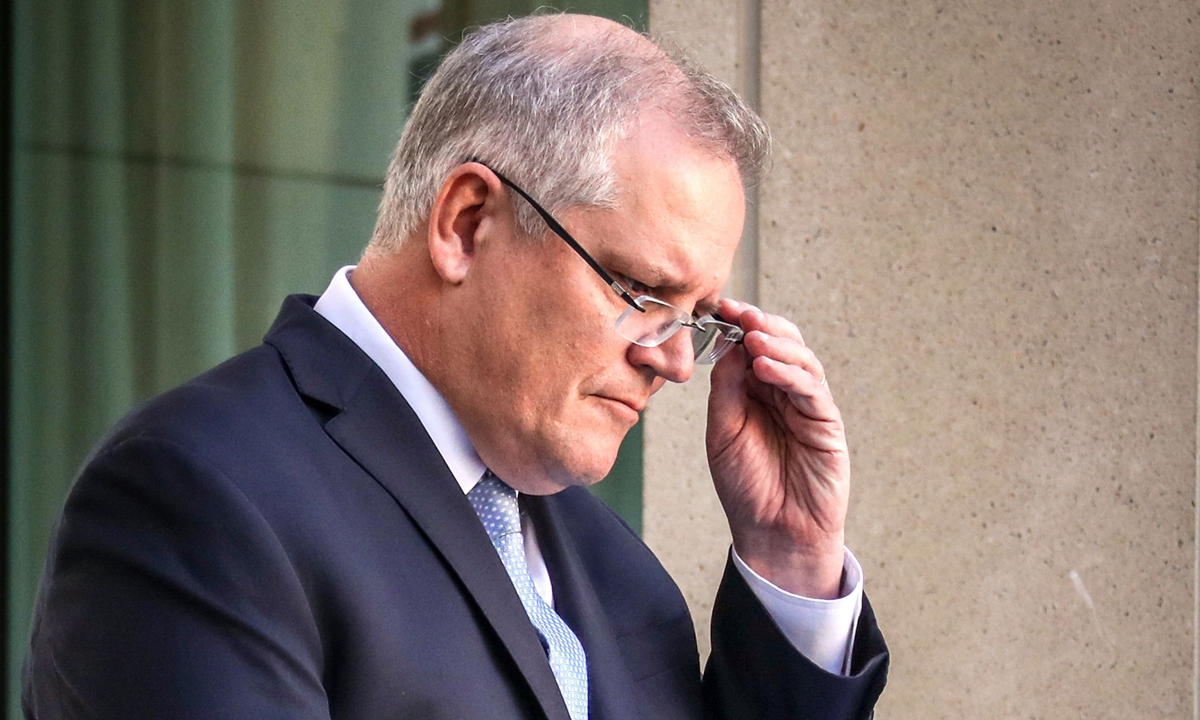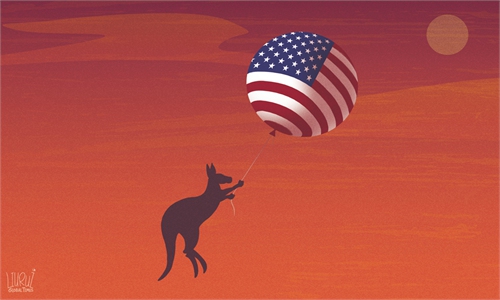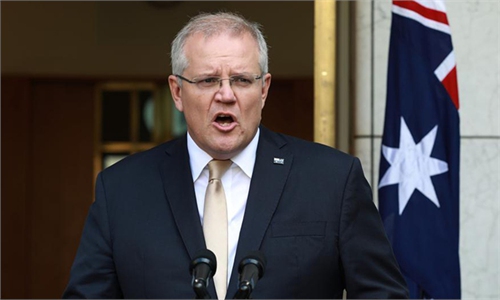
Australia's Prime Minister Scott Morrison reacting during a press conference at Australia's Parliament House in Canberra on March 22, 2021. Photo: VCG
Have Australian politicians gone too far in turning China into a campaign weapon? More Australians have begun to ponder on this question with the Morrison government going full throttle on anti-China rhetoric to boost his re-election bid.
A recent New York Times article shed light on the concern and despair of many Australians, and Chinese diaspora in particular, over the ruling party's tactic to make China a campaign weapon, saying it reflects the "intense emotions and risks associated with the Morrison government's attempt to exploit rising fears of China."
Analysts believe the campaign atmosphere this year has been especially poisoned as both the ruling coalition government and the opposition have weaponized Australia's relationship with China for domestic political gain. The Morrison government claimed, without any evidence, that Beijing wants Labor to win, and even went as far as to call Deputy Labor Leader Richard Marles "a Manchurian candidate." The opposition has also shown its toughness against China, emphasizing it would not be taking "a backward step" on any substantive points of disagreement with Beijing.
"Australian political parties keep hyping issues like China, putting party interests above national interests, which only jeopardizes Australia's national interests," said Ning Tuanhui, an assistant research fellow at the China Institute of International Studies. He emphasized that moves to weaponize relations with China will only make China-Australia relations a further victim of Australia's party struggles.
Chen Hong, president of the Chinese Association of Australian Studies and director of the Australian Studies Center at East China Normal University, believes Morrison is particularly leading the tough-on-China bluster. "The Morrison government is gambling, betting on a risky anti-China election strategy in its reelection bid," Chen said.
Since becoming prime minister in 2018 after a surprise come-from-behind election win, Morrison has increasingly displayed his speculative characteristics of both opportunism and adventurism in his political thinking and foreign policy. Under Morrison's leadership, Australia has blindly acted as the lackey of the US, which has squeezed the country's room for diplomatic maneuvers, and constantly provoked China, plunging China-Australia relations into a low ebb. "These have raised the public's dissatisfaction with the Morrison government and doubts over his diplomatic ability," Chen said.
Morrison wants to boost his approval rating to win the election by creating a tough image against China and smearing his opponents. But it is obvious that playing the China card while deflecting from Australian domestic vulnerabilities won't help politicians gain votes.
The Guardian Essential poll in mid-February suggested that a majority of Australian voters see China and the bilateral relations as a complex issue to be managed rather than a threat to be confronted, and more voters trust Labor than the coalition to manage that complexity. This week's Newspoll, conducted March 9-12 from a sampling of 1,520, gave Labor a 55-45 lead, unchanged since two weeks ago. And opposition leader Anthony Albanese is now tied 42-42 with Morrison as the preferred prime minister. It's the first time since February 2020 that Morrison hasn't led his opponent.
"For years, Australian politicians have ceaselessly made an issue of China and used China-related topics to attack rivals, many of which were even out of thin air. This has made Australians feel tired and disgusted," Ning said. As Australia has suffered heavily from worsening ties with China, zealously as politicians are playing tough-on-China political games, the Australian public has begun to reflect more seriously. They will not be easily manipulated or fooled by the politicians' ambitions.


